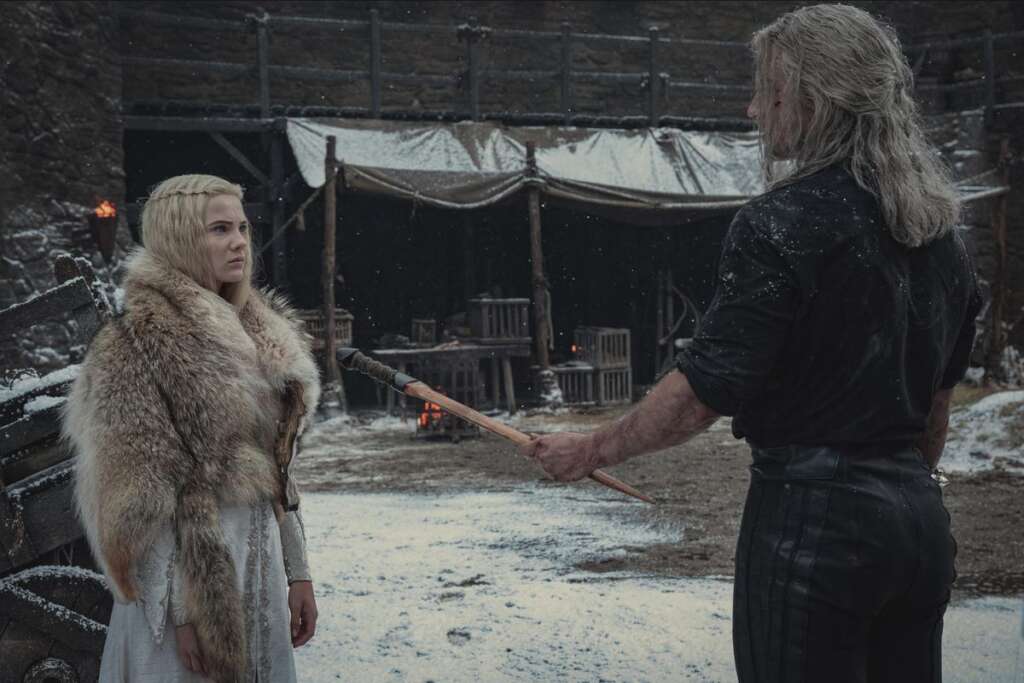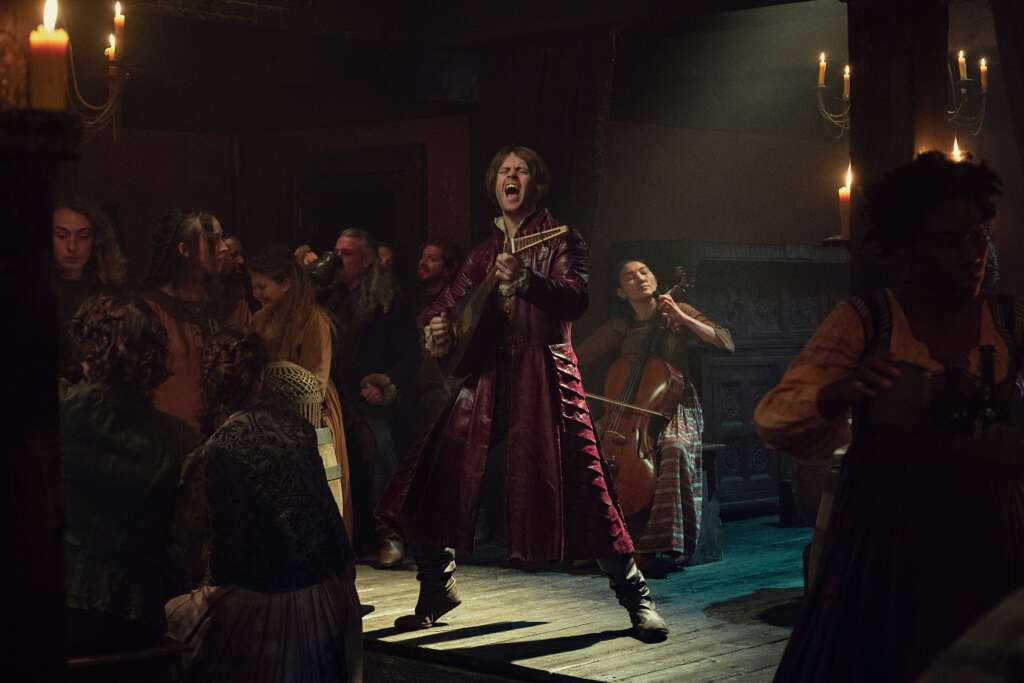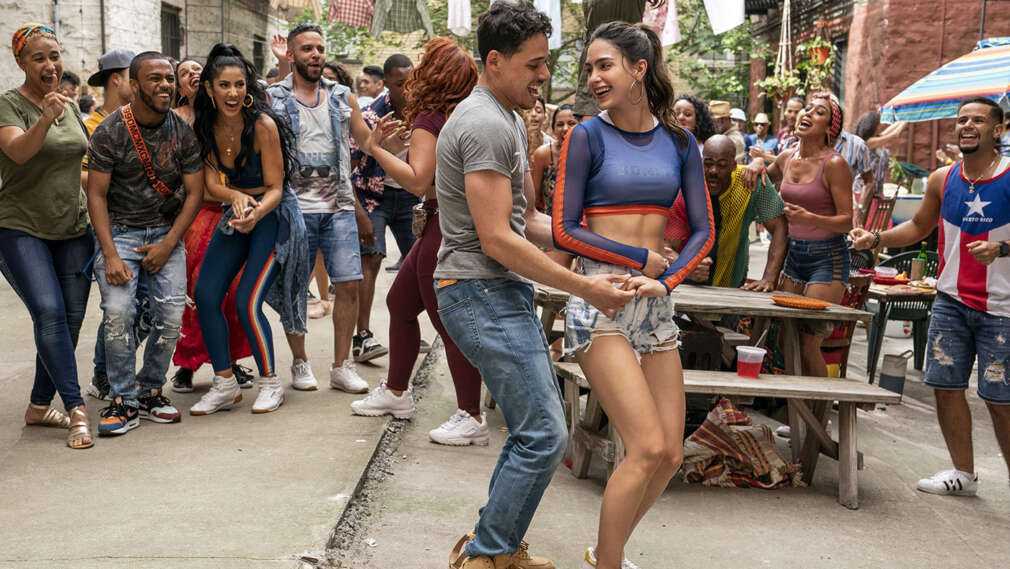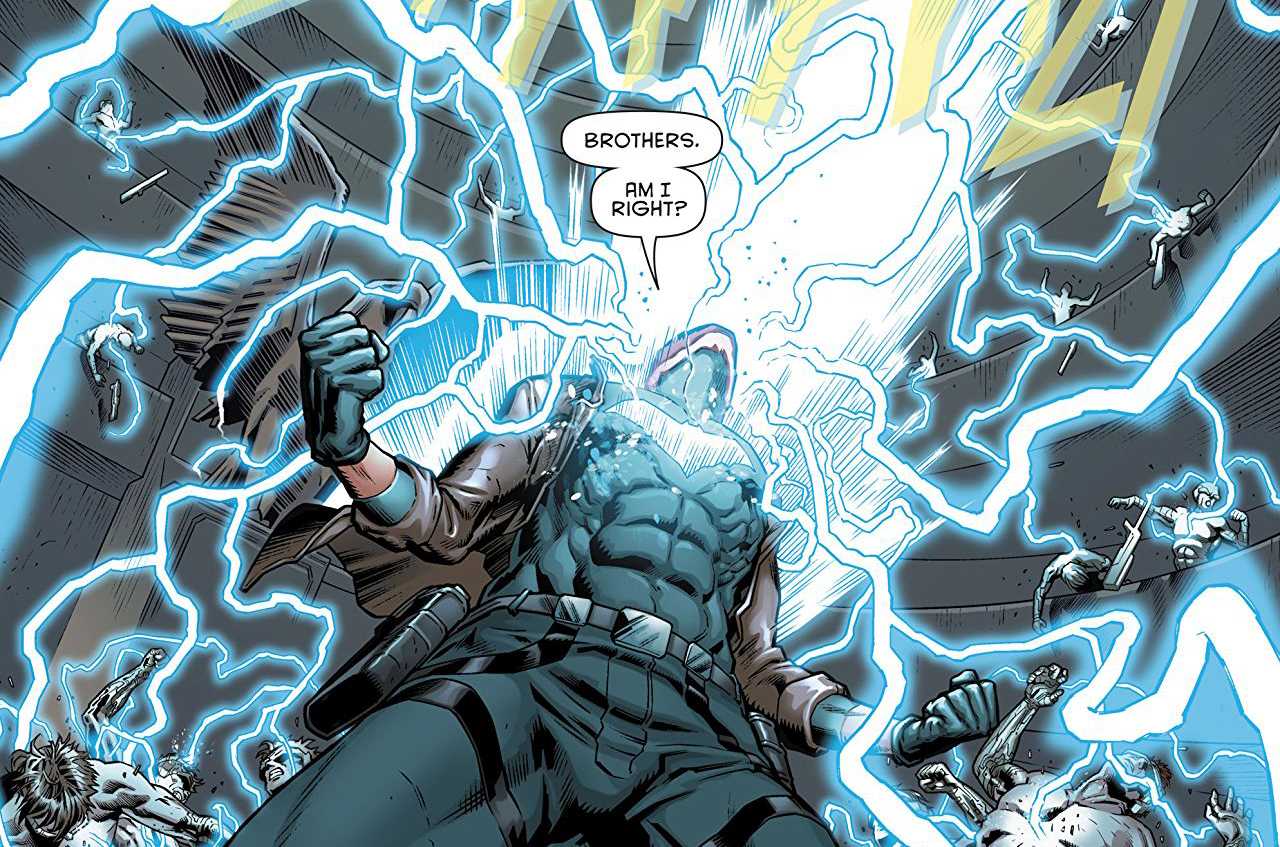Netflix’s acclaimed adaptation of Andrzej Sapkowski’s beloved novels and subsequent games has garnered such a significant following, that an animated prequel was launched, along with a number of spinoffs reportedly in the works. Almost two years later, the live-action series finally returns with an eight-episode season – but do the showrunners seek to address some of the flaws from the first outing?
Gone is the complicated timey wimey narrative flitting between timelines which left many viewers scratching their heads, replaced with a stronger linear tale exploring the central trio’s arcs as they branch apart. This is a more mature and impactful outing, as the universe is thrust in civil unrest following the events of Sodden Hill, with the North and South at war and monsters mysteriously emerging when they really shouldn’t be.
The political tensions between Nilfgaard, Redania, elves and the remaining mages are further fuelled as allegiances are tested and motivates questioned, particularly Yennefer’s (Anya Chalotra) as her arc takes her in a surprise direction. Pulling from The Blood of Elves novel, there’s also an intriguing commentary on racism and prejudice explored in one key thread, as the showrunners delve into the persecution of elves and non-humans at the hands of the Nordlings – connected to one of our favourite on-screen bards.
Meanwhile, Ciri and Geralt arrive at the long-awaited home of the Witchers – Kaer Morhen – as the latter is reunited with his former mentor Vesmir (Kim Bodnia), along with Lambert (Paul Bullion) and Coen (Yasen Atour). As Ciri trains with the Witchers, gender stereotypes and the paternal/”found family” dynamic are also explored, as the lion cub of Cintra evolves evolves from the timid, damsel in distress archetype into a brave and courageous pupil with a point to prove. Freya Allan is much more assured in the role this time round, clearly revelling in the new found agency and growth, particularly when Triss (Anna Shaffer) and Geralt attempt to delve into the mystery behind her fascinating magical abilities.
However, the emotional core of this series is truly the beautifully tender and heartfelt dynamic between Cintra and Geralt, as Cavill gets to dig deeper into the stoic – and often grunting – monster hunter. He’s also afforded much more depth, evolving into a more caring and protective trainer and carer. His delivery of “you are already enough, Cirilla. You are extraordinary” really is earnestly felt, as he taps into the heroic realm of previous roles.
One my biggest gripes with the first season was the obvious low-budget visual effects which took you entirely out of the fantasy world, so I’m glad to see such a marked improvement. The monster design excels, with brand new creatures and threats – all brought to life with a mixture of practical and visual effects – introduced for Geralt to face off against. Speaking of the White Wolf, he harnesses his magical powers much more this time round, impressively harnessing both fire (Igni) and shielding (Quen) spells, in a number of high-stakes battles filled with well choreographed fight sequences.
This is a significantly more cinematic experience, as the collection of cinematographers make full use of the exquisite and vast landscapes of Scotland, England, Slovakia and the Czech Republic, immersing viewers in an often beautifully snowy fantasy world. Shadow and Bone composer Joseph Trapanese is on scoring duties this time round, once again bringing a hugely atmospheric musical accompaniment to key events, but it unfortunately doesn’t quite live up to duo Sonya Belousova and Giona Ostinelli’s expectional score from the first season. Joey Batey once again gets his own time to shine with the latest Jaskier jaunt, which isn’t quite as much of a bop as “Toss a Coin to Your Witcher”.
Verdict
The Witcher season two expands upon the first for a more cinematic and confident instalment, complete with improved depth of character for the central trio and an intriguing central mystery.




